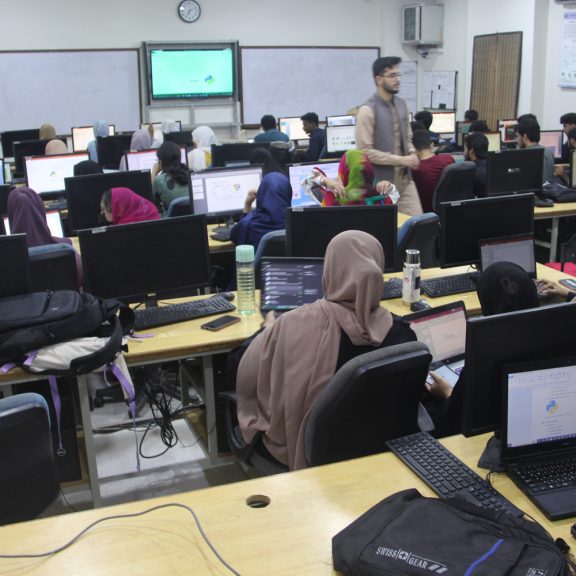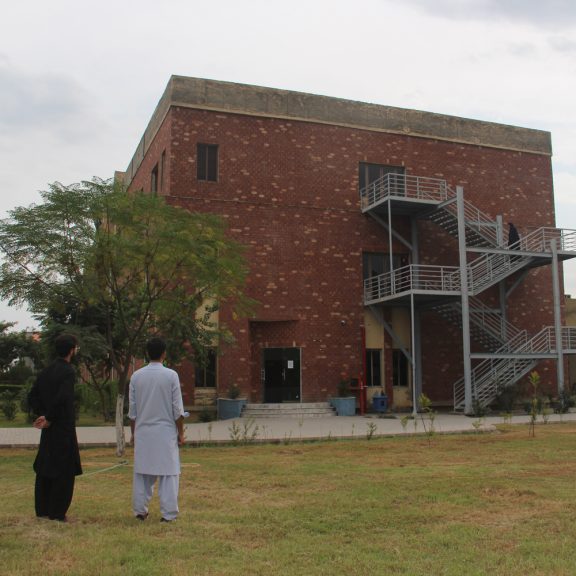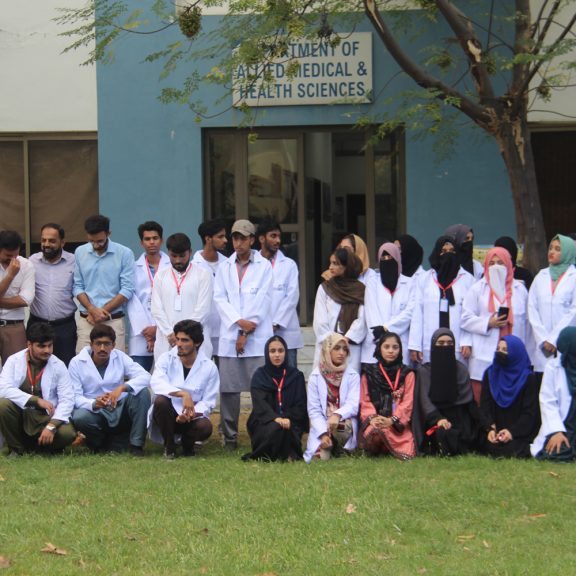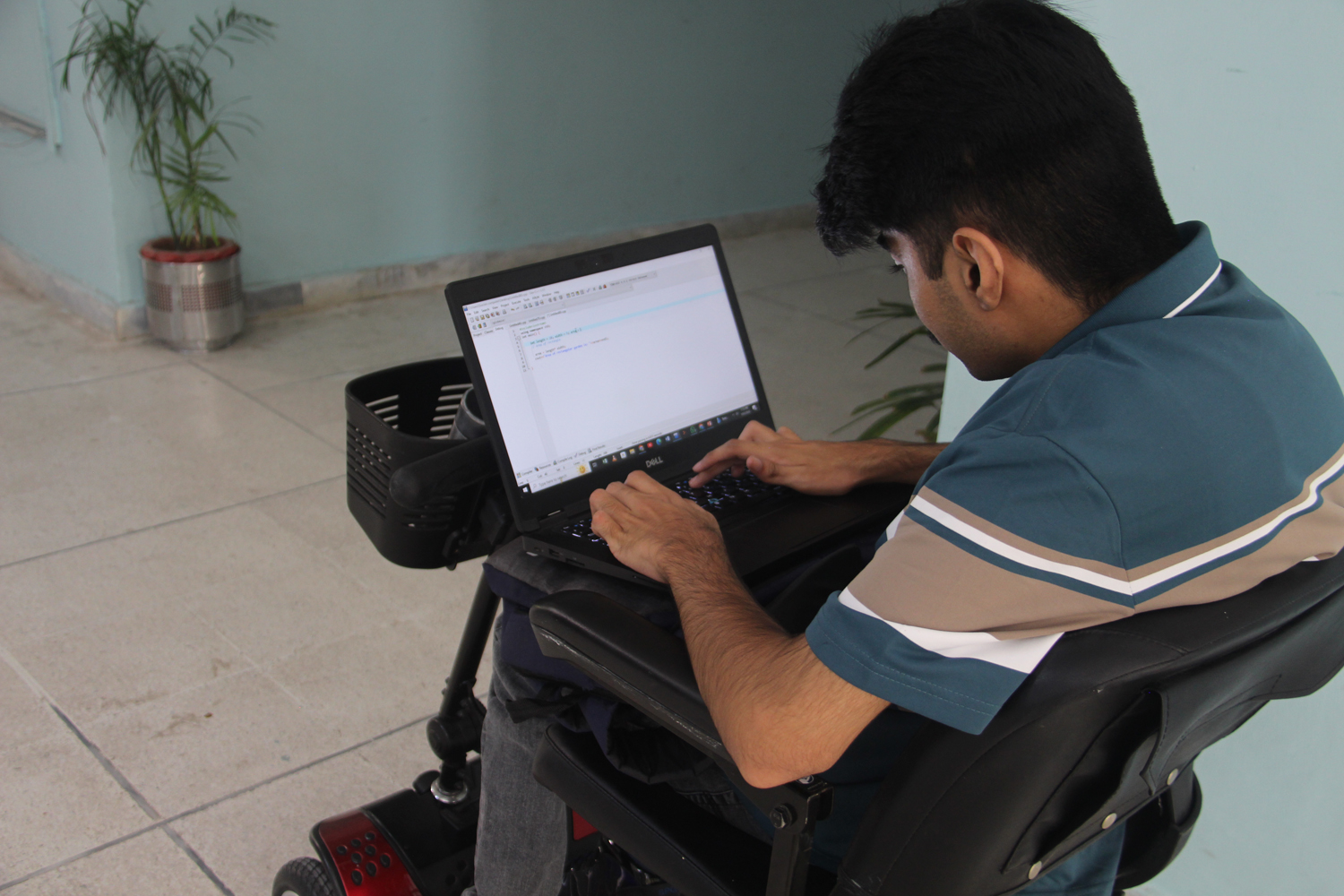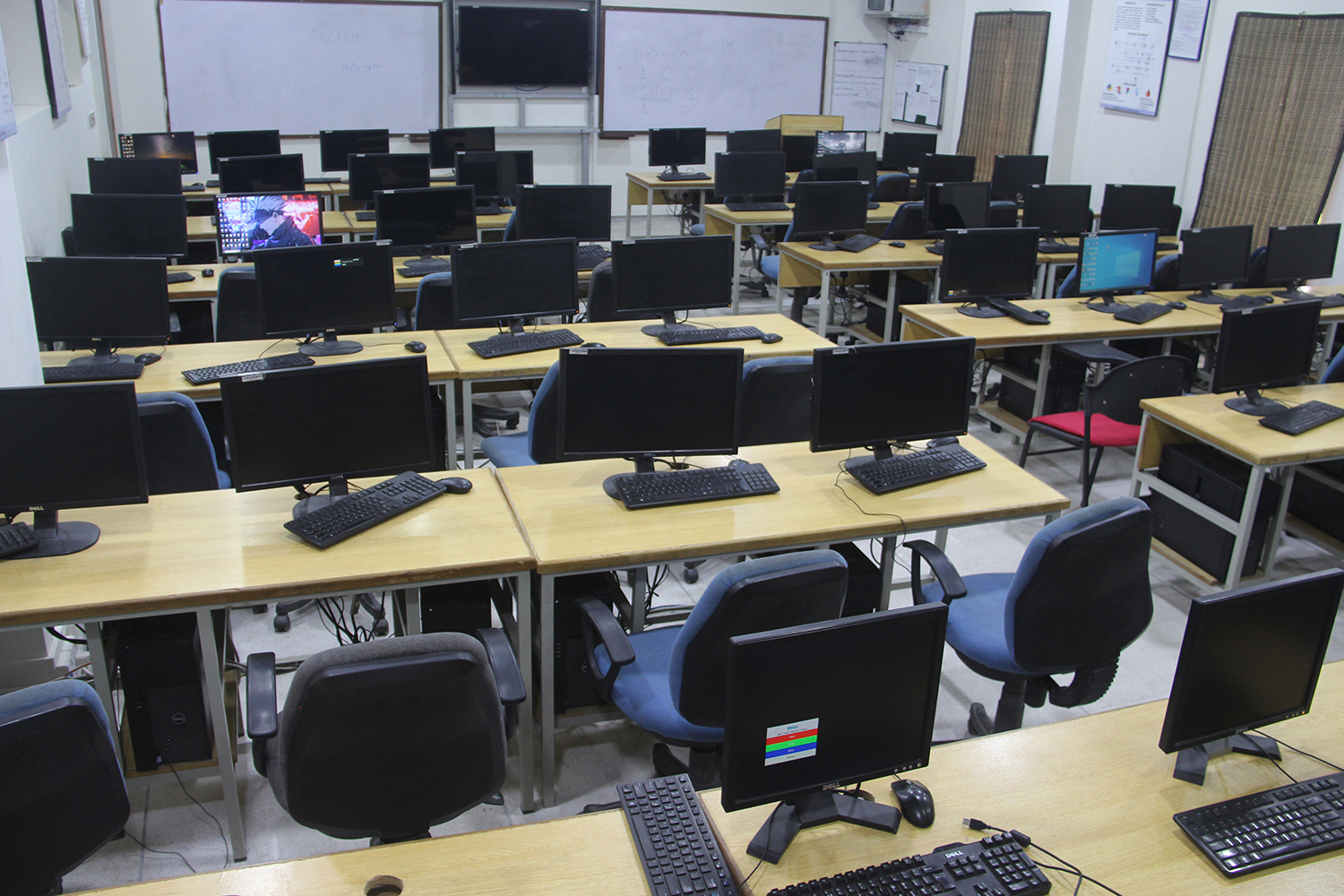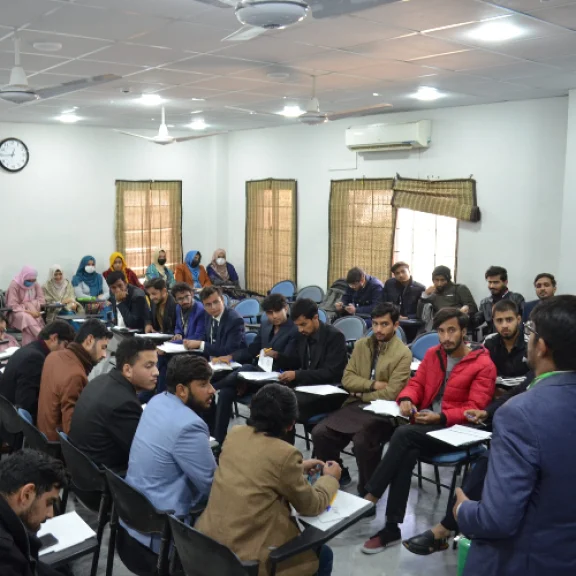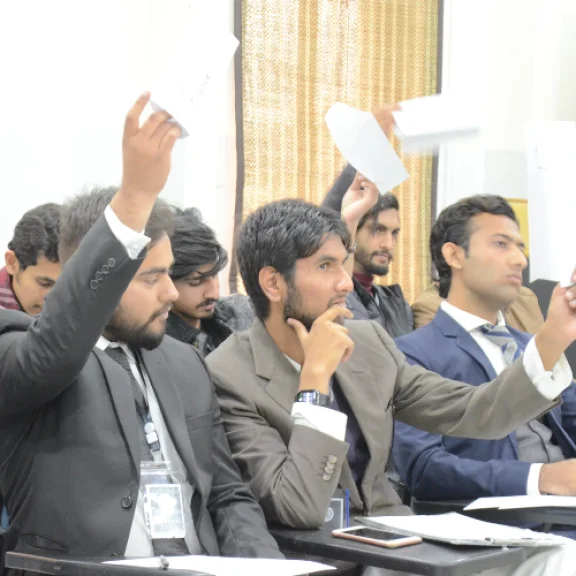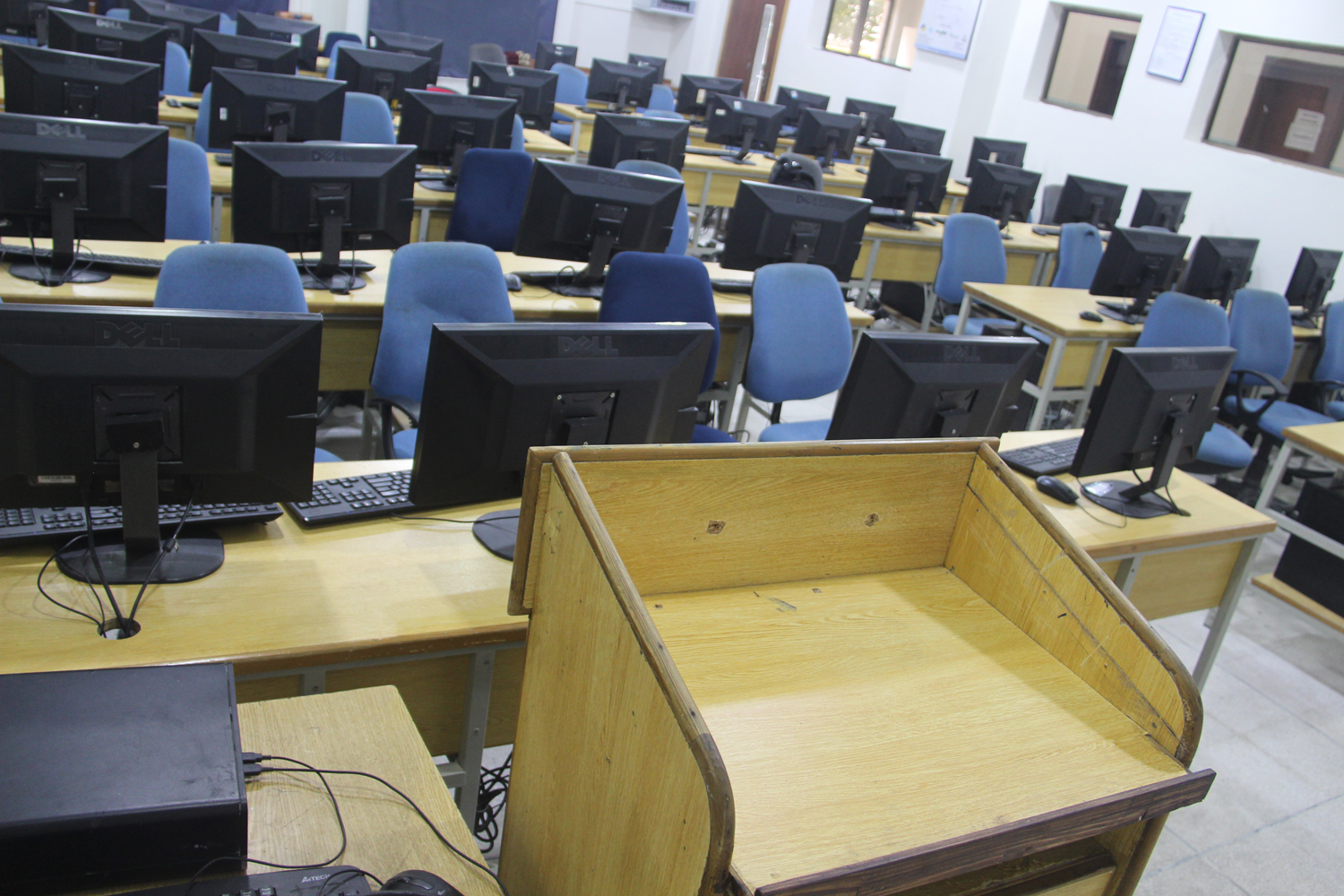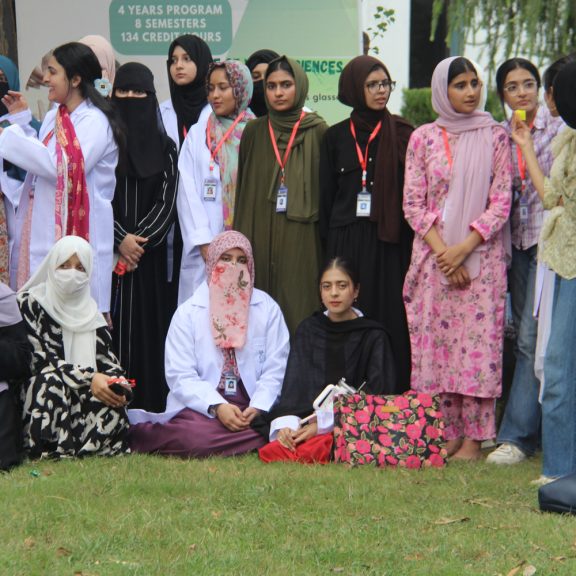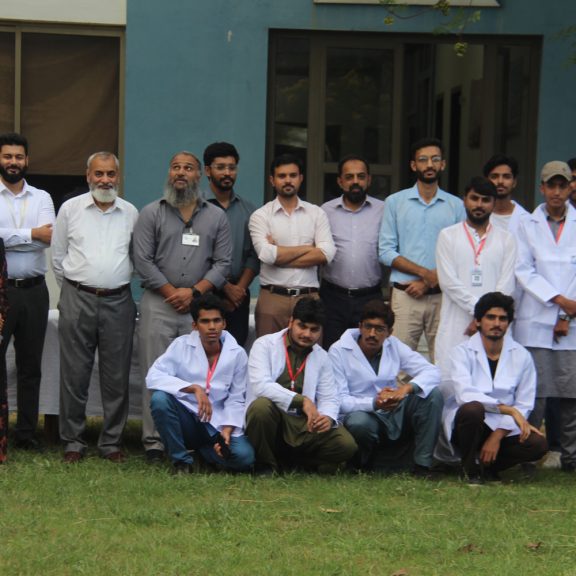Code of Conduct
The students enrolled in Sir Syed CASE Institute of Technology (SSCIT) have an obligation to conduct themselves in a manner compatible with Pakistan, s cultural moorings and Islamic morality and values
Student Conduct & Disciplines
At SS-CASE-IT, we believe that education is a transformative journey. Our Health sciences degree programs are designed to not only equip the students with knowledge but also provide with an unparalleled experience that will set them on the path to success in the medical and healthcare industry. With a commitment to excellence, innovation, and patient-centered care, our department offers a range of degree programs that provide a solid foundation for a successful career.
Programs Offered:
Inherent Authority
The Institute reserves the right to take necessary and appropriate actions to protect the safety and well being of the campus community. Actions considered inimical to the Institute and subject to discipline, fall into the categories of academic and non academic misconduct. The Student Code of Conduct clearly defines these expectations and outlines the adjudication process. The purpose of the Student Code of Conduct is to educate all members of the SSCIT community and to maintain an environment conducive to academic excellence. If there is a complaint of unprofessional conduct regarding a student, the Registrar Office can suspend the student immediately and refer the CASE to the Disciplinary Committee.
Scholarships for Graduate Programs
Academic misconduct relevant to any Institute’s activity will be addressed wherever it may occur. Non academic misconduct includes the acts identified in the Code of Conduct section whenever such acts:
1- Occur on Institute premises
2- Occur at Institute sponsored activities
3- Occur at Group or Organization Activities
4-Create a clear (or present danger of) material interference with the normal or orderly processes of the Institute or its requirements of appropriate discipline.
Academic Honesty
Intellectual/academic work in every discipline involves the use of others’ thoughts, work, and experimental results, published and unpublished. Academic honesty requires that such use be frankly and fully acknowledged. Failing to make such acknowledgment constitutes academic dishonesty. This policy is designed to make clear, the seriousness of the institute’s commitment to academic honesty.
Cheating
The use of unauthorized or prohibited material in any academic exercise like examinations would be considered cheating. Unless told otherwise by their instructors, students should assume that examinations are to be completed without the use of books, notes, or conversation with others. Students, who use or attempt to use unauthorized information in any academic exercise, including but not limited to scheduled exams, would be charged with cheating. Some other forms of cheating are:
- Copying homework assignments from another student
- Accessing another student’s computer and using his/her program as one’s own
- Looking at another student’s paper during an examination
- Communicating, in any form, with other students during the examination
- Looking at text or notes during an examination unless specifically allowed by the teacher or invigilator
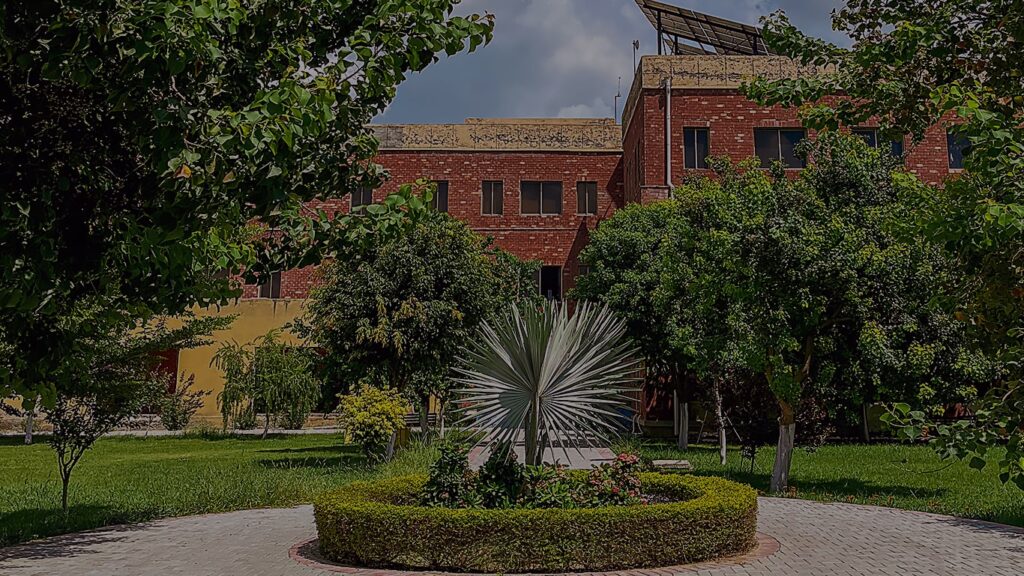
Plagiarism

Penalties for Academic Dishonesty
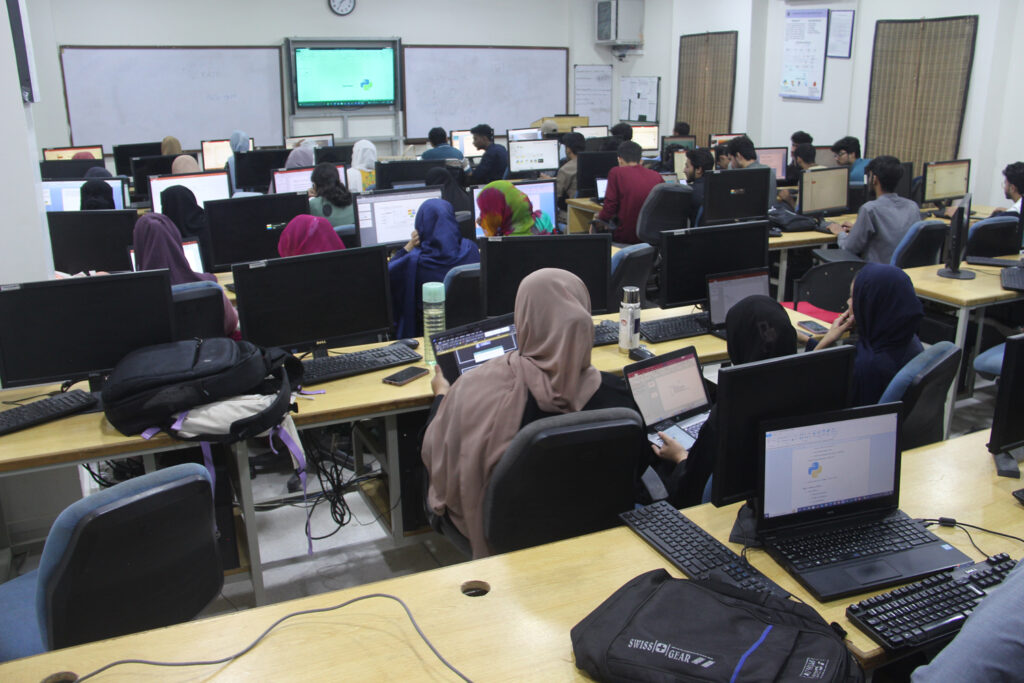
Class Room Behavior
Student Code of Conduct
A student of SSCIT will be required to observe the following code of conduct:
- Respecting the culture and tradition of Pakistan and its Ideology and refraining from doing anything, that is repugnant to its honor and prestige in any way.
- Respect for convictions and traditions of others in matters of religion, consciences, and customs while observing your own religious duties/customs
- Truthfulness and honesty in dealing with other people
- Respect for elders and politeness to all, especially to women, children, the elderly, the weak, and the handicapped.
- Special respect for teachers and others in authority in the Institute.
- Cleanliness of body, mind, speech, and habits.
- Helpfulness to fellow beings
- Devotion to studies and prescribed co-curricular activities.
- Observance of thrift and protection of public property
Actions Against Misconduct
Every member of the faculty, the staff, and the student Proctors have the responsibility as well as the power to check any disorderly or improper conduct or any breach of the regulations by students in any part of the Institute/Campus or outside when on a visit that has been sponsored or organized by it. Misconduct in a classroom when a student is under the charge of a teacher shall not be allowed and punitive action, if found guilty, may be initiated depending upon the seriousness of the misconduct and in accordance with the procedure and powers of punishment listed subsequently in this chapter. Faculty members have been given powers to warn students and also to forward observation slips about the bad conduct of any student.
Proctorial System
There is a Proctoral system in place to be implemented once its details are finalized. It is purported to be administered by a team of Faculity members. A senior teacher is appointed as Chief Proctor. He is assisted by a number of Staf Proctors in enforcing discipline in the Institute and its premises. He has the power to impose and penalize the students found guilty of misconduct or involved in any unlawful activity. He maintains active contact with the students.
Prohibited Acts
The following acts are prohibited for students:
- Smoking on the premises of the Campus
- Use of alcoholic drinks or other intoxicating drugs within the Campus or during instructions, sports or cultural tours or survey camps or entering such places or attending any such tour or camp
- Use of mobile phones in classrooms
- Organizing or taking part in any function inside the campus or organizing any club or society of students except in accordance with the SSCIT prescribed rules and regulations.
- Collecting any money or receiving funds or pecuniary assistance for or on behalf of the Institution except with the written permission of the Executive Director or any other person authorized on his behalf. Staging, inciting or participating in or abetting any walkout, strike, or another form of agitation against the Institute, its teachers, officers, or authorities, inciting anyone to violence, disruption of the peaceful atmosphere in any way, making inflammatory speeches or gestures which may cause resentment, issuing of pamphlets or cartoons casting aspersion on the teachers or staff or its authorities/bodies or doing anything in any way likely to promote rift and hatred among the students, issuing statements in the press, making false accusations or lowering the prestige of the Institute.
- Theft of any item, which is the Institute’s property, including unauthorized taking away of library/laboratory equipment. Indulging in acts involving chalking of premises or display of posters/leaflets/ notices jeopardizing the maintenance of good order and discipline at the Institute premises.
- Scratching or doodling with sharp tools the vehicles parked in the premises or in the Institute Car Parking areas or putting on nasty notes etc.
- Fighting/quarreling with other students.
- Carrying or displaying weapons, firearms, crackers, and any explosive or incendiary material on the Campus.
- No political activity of any nature is organized, arranged, or enacted within the premises of the Institute or when out of the Institute premises on a visit/tour/activity organized by the Institute.
Student Dress Code
It is compulsory for all students to wear a proper dress. Students who are not properly dressed shall not be allowed to enter the Institute Campus.
Female Students: The Female Students shall wear a dress that should be in line with Pakistani culture and religious traditions.
Male Students: The male students should wear a shirt with trousers and dress shoes. They may also use shalwar, kameez, and dress shoes, preferably with a waistcoat.
Students ID Card
Students are issued ID Cards. They are required to produce these on demand. Student’s particulars; Enrollment Number, UET Registration Number, and Program are embedded in the barcodes of the Card. In CASE of its loss, the student must immediately report to the student affairs department which will make arrangements for the issuance of a new card after payment of a fine of Rs 500.
Students must display a Card to identify them, when on Campus and while attending all the activities organized by the Institute.

